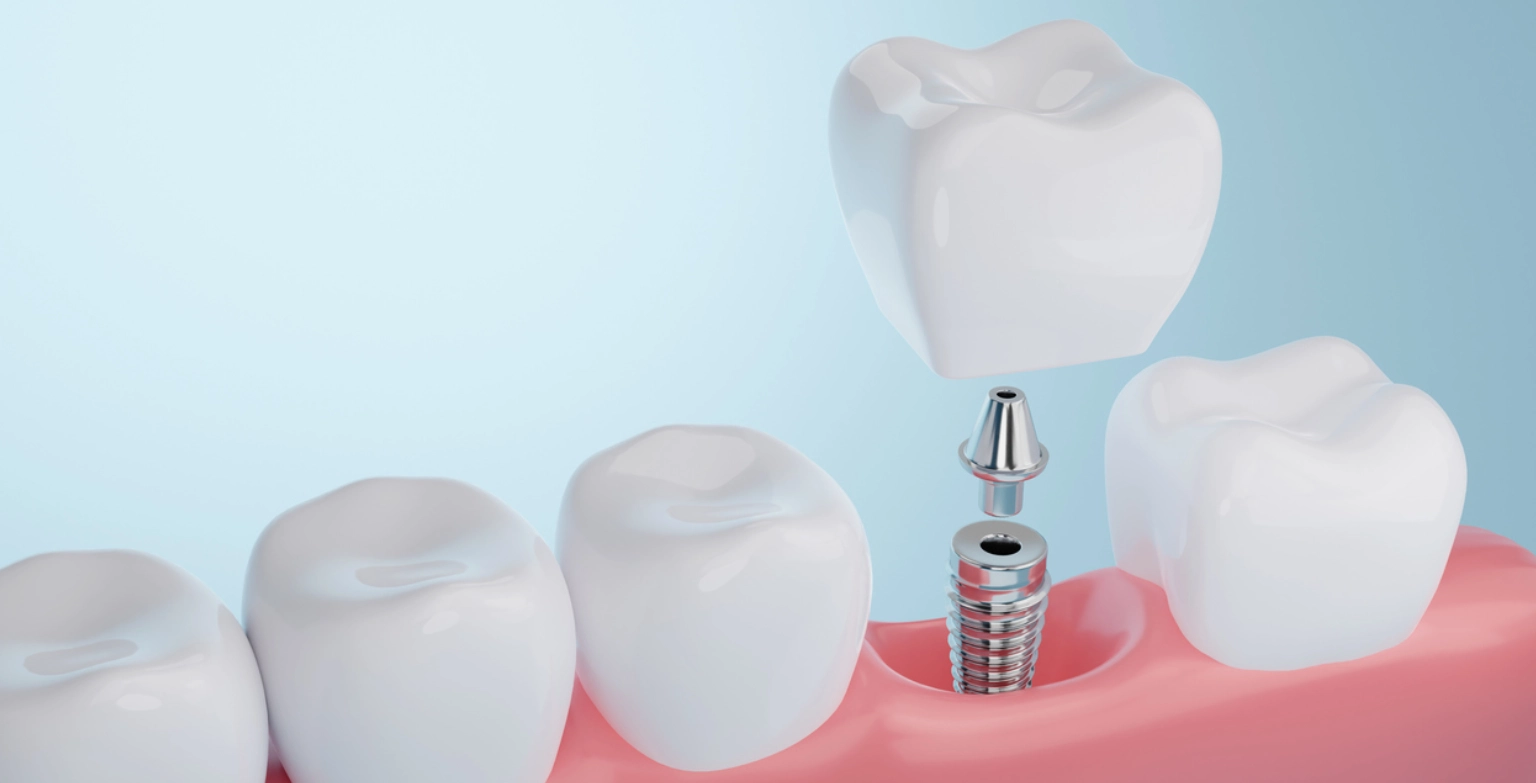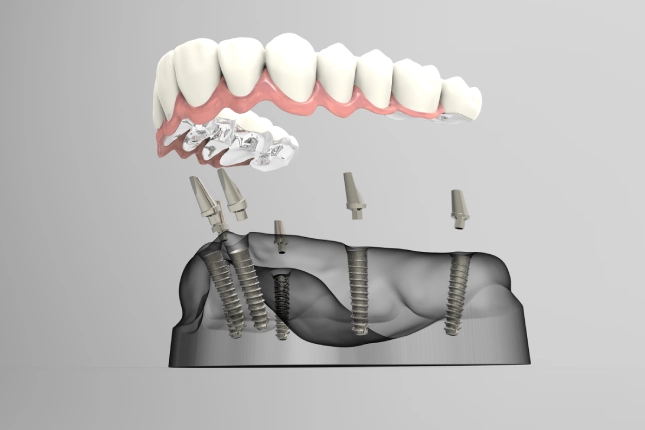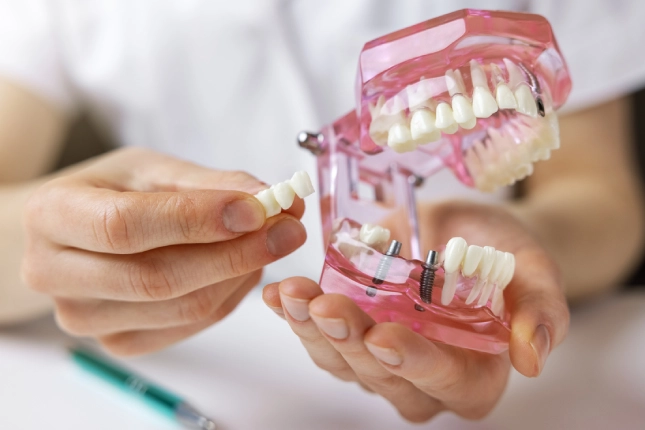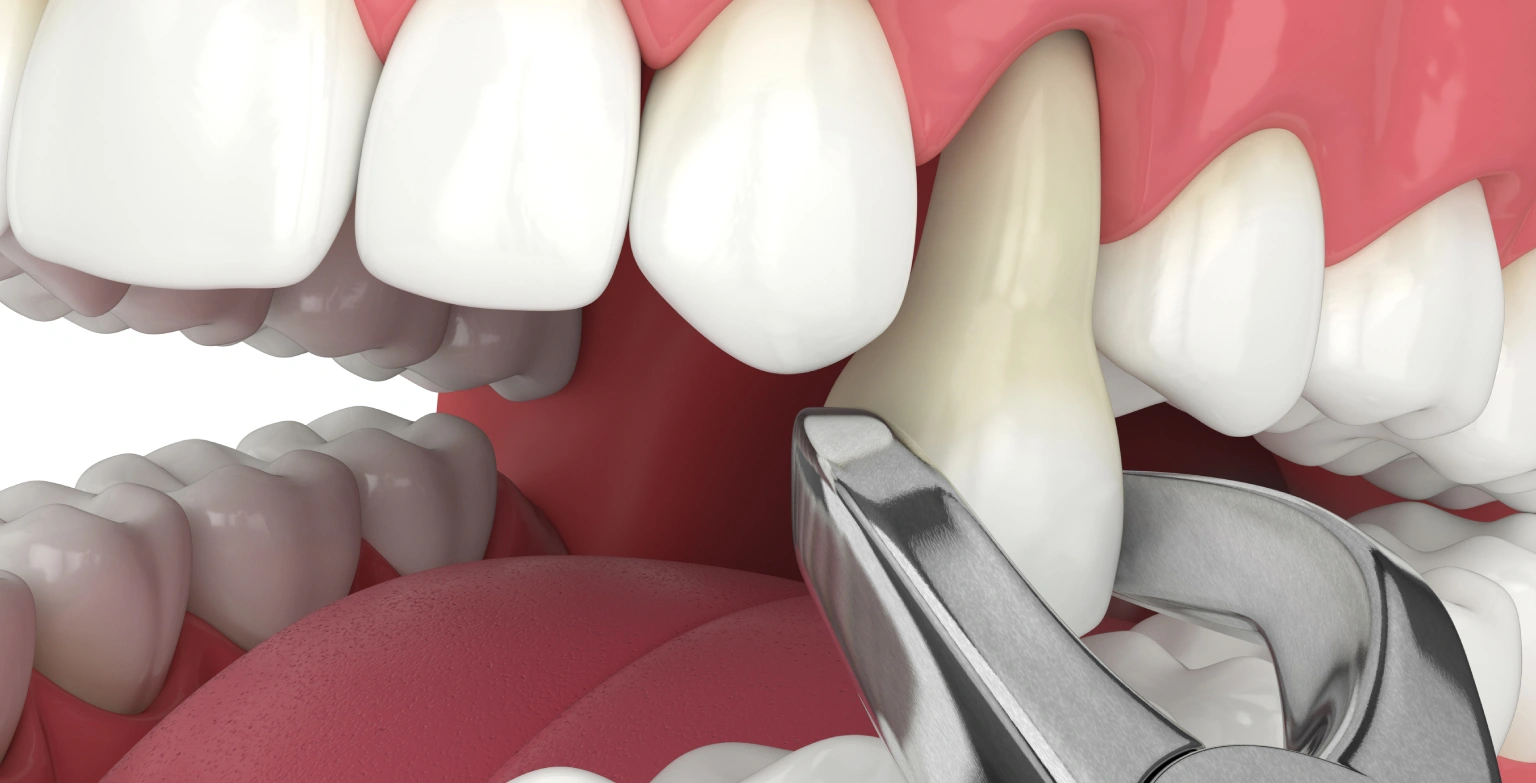How Long Do Dental Implants Last?

Missing teeth are a common problem among adults in the United States. In fact, there are millions that are missing one or more teeth. In some cases, tooth loss is due to aging or genetics. In other cases, it is due to a lack of access to adequate dental care or improper oral hygiene habits.
However, no matter what the cause, the results are the same:
- Difficulty chewing, leading to malnutrition
- Difficulty speaking
- Lowered self-esteem
- Increased risk of additional tooth loss
- Jawbone deterioration
For a long time, the primary solution for tooth loss was dental bridges or conventional dentures. While effective, these don’t resolve all of the issues associated with missing teeth.
Dental implants can help with all aspects of tooth loss. A dental implant is a device that is inserted into the jawbone, creating a stable base for prosthetic teeth. An implant can be used to replace a single tooth, or can be used with additional implants to replace up to an entire arch.
Many of our patients at Gary Login DMD Cosmetic and Restorative Dentistry have opted for dental implants because of their high success rate. In this article, we’ll explain the average life expectancy of dental implants as well as the factors that play a role in the success or failure of implants.
Factors That Affect the Longevity of Dental Implants
There are several factors that impact the life expectancy and success rate of dental implants.
Oral hygiene and maintenance
Proper oral hygiene and maintenance includes brushing at least twice daily, flossing at least once, and visiting the dentist every 6 months.
Type of implant material
The most common material for dental implants is titanium because it is the most biocompatible metal. However, there are traces of other metals in this material that can trigger an allergic reaction in some patients. If you have an allergy to any of the metals used in titanium, you may consider zirconia dental implants.

Implant placement technique
The experience of the surgeon performing the procedure and the way the implants are placed play a role in the life expectancy of implants.
Bone density and quality
Your jawbone can weaken due to trauma, tumors, periodontal disease, and other health conditions. If this is the case, you will need treatment before implants can be placed because they require adequate bone density and health to avoid failure.
General health of the patient
One of the major qualification factors for dental implants is oral and overall health. If you have underlying health conditions such as uncontrolled diabetes, autoimmune conditions, osteoporosis, certain cancers, a history of radiation treatment, and other health issues. The dentist will go over your dental and medical history to determine if dental implants are appropriate for you.
Age factor
Pediatric patients do not qualify for dental implant surgery because their jawbones are still forming. However, there is no upper limit for implant placement. That being said, it is important to note that age does play a factor in healing, which can determine the success or failure of dental implants.
Average Lifespan of Dental Implants
Dental implants have a 90% to 95% success rate over 10+ years. In fact, research has shown that when properly placed and cared for, dental implants may last a lifetime. The crown may need to be replaced after about 15 to 20 years due to wear and tear.
Implant Failure and its Causes
While dental implants do have a high success rate, there is a small risk of dental implant failure. A failed dental implant is one that must be removed. Implant failure can happen shortly after implantation or can happen several years later. There are several common causes of implant failure:
- Bruxism (teeth grinding)
- Allergic reaction to the metal in the implant screw
- Nerve damage
- Slight shifting of the implant during healing
- Inexperienced surgeon
- Poor impressions
- Underlying medical conditions
- Insufficient jawbone density
- Improper oral hygiene habits
If your dental implants do fail, it is important to have them removed immediately. In some cases, new implants can be placed after you heal. If the failure was due to jawbone density, your dentist may consider bone grafting to build up the jaw. Once you have healed from this surgery, new implants may be an option. In some cases, a dental bridge or conventional dentures may be a better option.
Some of the most common symptoms of dental implant failure are:
- Swelling
- Pain/discomfort
- Loose implant
- Gum inflammation/recession
Long-Term Follow-Up and Maintenance
The best way to improve your chances of implant success is to take proper care of your implants. This includes:

- Proper oral hygiene habits: brushing at least twice daily and flossing at least once. While dental implants won’t decay, bacteria can collect around them. This can lead to plaque and tartar buildup, which can lead to gum disease- and ultimately cause implant failure.
- Visit the dentist every 6 months: this will allow the dentist to monitor your implants for any issues and resolve any issues before they advance.
- Avoid smoking and drinking alcohol: smoking and alcohol can impact your body’s ability to heal, which can impact the success or failure of your dental implants. If you are a smoker, it is recommended that you quit- at least during the procedure and healing process.
- Periodontal therapy: if you have been diagnosed with gum disease, ongoing periodontal maintenance is critical for the success of your dental implants.
Schedule Your Dental Implant Consultation Today
If you are missing one or more teeth, schedule your consultation with the team at Gary Login DMD, Cosmetic and Restorative Dentistry. We are located at 209 Harvard Street, Suite 402 in Brookline. Our office hours are Monday through Thursday from 7:30 AM to 5:30 PM and Friday from 8:00 AM to 2:00 PM.
Dental Implants FAQs
The team at Gary Login DMD, Cosmetic and Restorative Dentistry understands that you may have questions about dental implants. We are more than happy to address these at any time before, during, and after your treatment. Below we’ve taken the time to answer some of the questions that we get most often.
Can dental implants last a lifetime?
Dental implants have a 90% to 95% success rate over 10+ years and have been proven to last a lifetime with proper care and maintenance. However, it is important to note that the crown may need to be replaced within 15 to 20 years.
What is the failure rate of dental implants?
The failure rate of dental implants is about 5% to 10%. Implant failure may be due to several reasons, including working with an inexperienced surgeon, improper oral hygiene habits, underlying medical conditions, and more.
Are dental implants 100% safe?
Yes, dental implants are 100% safe for healthy individuals. If you have underlying health conditions, it could impact the safety and longevity of implants.
Do implants need maintenance?
Dental implants do not have any special maintenance needs. Simply brush and floss as usual- and visit the dentist every 6 months for a comprehensive exam and cleaning. This will allow us to check for any issues that could potentially cause problems and resolve them before they cause implant failure.

If you are missing one or more teeth, schedule your consultation with the team at Gary Login DMD, Cosmetic and Restorative Dentistry. We are located at 209 Harvard Street, Suite 402 in Brookline. Our office hours are Monday through Thursday from 7:30 AM to 5:30 PM and Friday from 8:00 AM to 2:00 PM.

One of the top rated dentists in Brookline, MA




